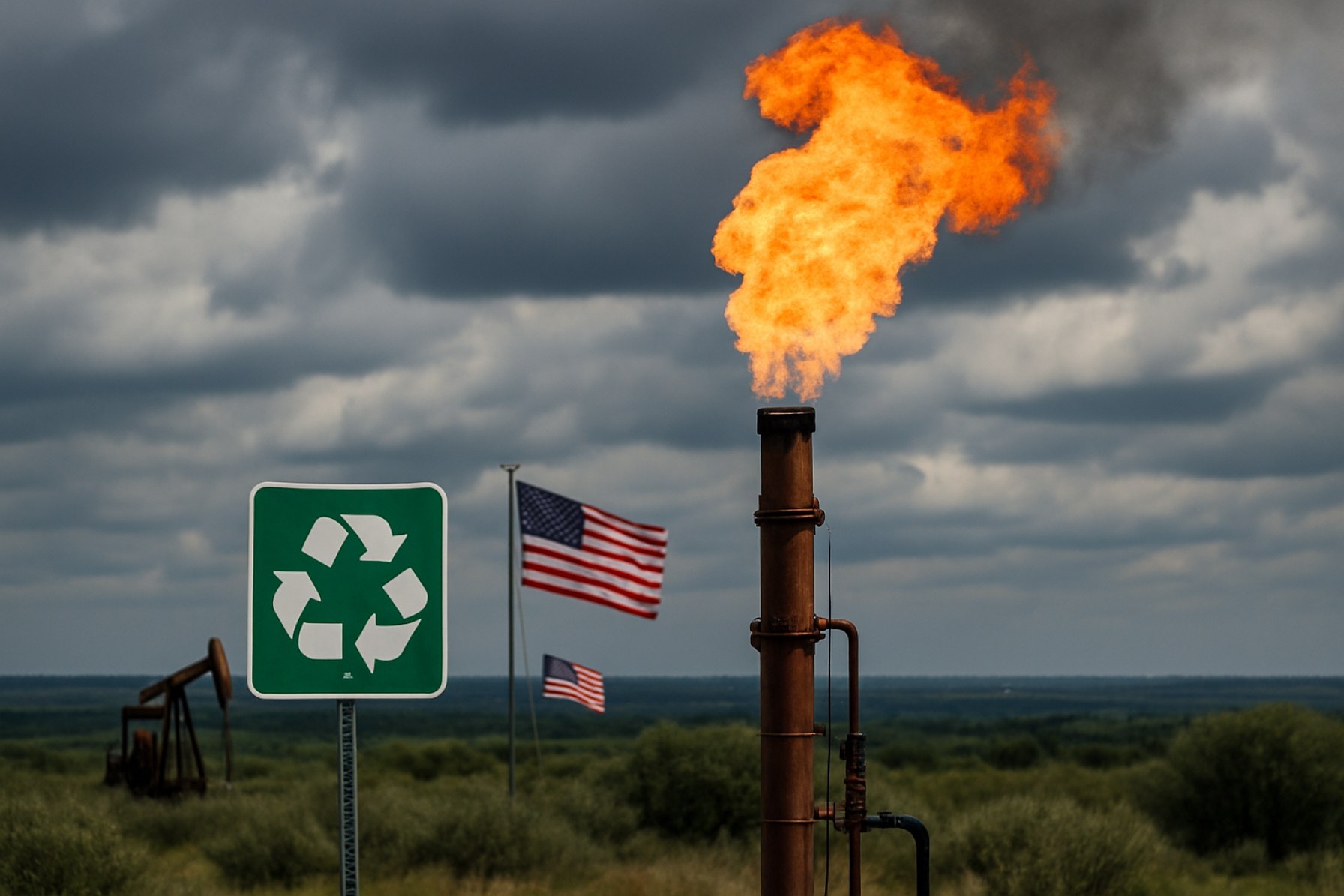Secret Money, Powerful Lobbyists, and a Wave of Laws Are Rewriting the Definition of “Clean Energy” — Here’s What’s Really Going On
Methane gas is being rebranded as “green” energy in a growing number of US states. Find out who’s behind the push and why it matters now.
- 28x: Methane’s potency compared to CO₂ at trapping heat in the atmosphere
- 6+ States have considered redefining methane gas as “clean” energy since 2023
- $Millions in support from big donors, including the Koch network, backs these efforts
- 29: US states and D.C. with renewable portfolio standards at risk of weakening
A stealth campaign is unfolding in state capitols nationwide—a coordinated push to legally relabel methane gas as “clean” or “green” energy. Behind the scenes, powerful fossil fuel interests, lobbying organizations, and “dark money” groups are driving new laws that threaten to upend local and state efforts to fight climate change.
These legislative maneuvers aren’t just arcane policy moves—they could roll back hard-won clean energy standards, fool the public, and delay America’s transition from fossil fuels. Major players like the American Legislative Exchange Council (ALEC), the Koch network, and fossil fuel-funded think tanks are working overtime to secure gas’s future, while labeling it as “clean.”
Q: Why Are States Suddenly Calling Methane Gas “Green”?
In 2023, Ohio passed a groundbreaking bill reclassifying methane gas—a potent greenhouse gas—as “green” energy, opening the floodgates for similar efforts in Indiana, Tennessee, Louisiana, and more. The playbook? Model bills from ALEC, honed by advocacy groups like The Empowerment Alliance, whose leadership includes major fossil fuel donors.
State officials argue these laws protect jobs and local economies. But insiders reveal it’s a strategic bid by fossil fuel lobbyists to secure a place for gas, even as renewables surge and climate regulations tighten. The bills are designed to force regulators to include gas—and even propane—in any definitions of “clean” or “renewable” energy.
How Does the Gas “Greenwashing” Law Work in Practice?
The laws use slippery language, often requiring public utilities and local governments to count gas as “clean” energy alongside wind and solar. For example, Tennessee’s law compels any city with green energy goals to include gas, thwarting efforts by cities like Nashville to use 100% renewable power.
In Louisiana, a similar bill is advancing that could ensure gas and other hydrocarbons remain central to the state’s energy mix, even as utilities plan for the future. In Indiana, a law now allows state and federal funding—previously earmarked for wind or solar—to be spent on new gas and propane projects.
Q: Who’s Funding This Nationwide Campaign?
A network of powerful interests is at the center: ALEC, whose model bills are shaped and promoted by donors like Charles Koch; The Empowerment Alliance, driven by fossil fuel insiders; and support from institutions such as the Heartland Institute and Institute for Energy Research. These groups have a track record of working to slow or block climate policies at every turn.
Records reveal the same advocacy playbook popping up in multiple states, often spearheaded by lobbying groups representing gas utilities and industry leaders. Analysts say the rapid spread of these policies is meant to secure fossil fuel interests as America’s power grid modernizes—and public calls for renewable energy grow louder.
How Will These Laws Impact State Climate Goals?
Experts warn that if methane gas is deemed “clean” by state law, current renewable portfolio standards could be rendered toothless. Nearly 30 states and the District of Columbia have hard-won clean energy targets. These new bills may allow fossil fuels to continue dominating electricity supply, even where voters and consumers demand true renewables.
Methane is among the worst greenhouse gases: more than 28 times as potent as carbon dioxide over a 100-year span, and over 80 times in its first 20 years. As scientists sound alarms and methane emissions reach record highs, this legislative maneuver threatens to derail urgent climate action.
Q: What’s at Stake for American Energy Consumers?
If these laws stand, billions of dollars meant for solar, wind, and battery projects could flow instead to gas plants. That could slow America’s renewable transition—and keep communities at risk from air pollution and volatile fuel prices.
In states like Michigan, where a bill could allow gas-fired power plants to qualify as “clean” under 2040 climate goals, the question is clear: Will lawmakers protect the fossil fuel industry or move boldly toward real clean energy?
How Can Citizens Respond or Stay Informed?
Tracking energy legislation in your state is now crucial. Clean energy advocates urge the public to demand transparency, push for stronger climate standards, and resist attempts to water down “renewable” and “clean” energy definitions. Follow trusted sources like the NRDC and Department of Energy for updates and background.
Don’t let “greenwashed” legislation undermine America’s climate progress—spread awareness and demand real renewable energy standards in your state.
- ✅ Watch for new energy bills or legislative proposals in your state
- ✅ Scrutinize claims labeling gas or propane as “clean” or “green”
- ✅ Connect with local clean energy advocates and trusted nonprofits
- ✅ Contact your state representatives to clarify your stance on authentic renewables
- ✅ Share this article to spark informed debate and action








